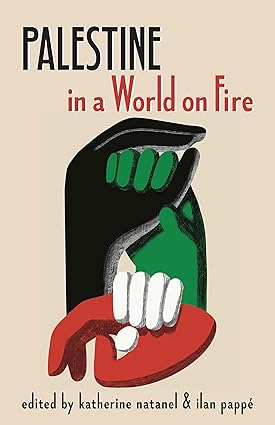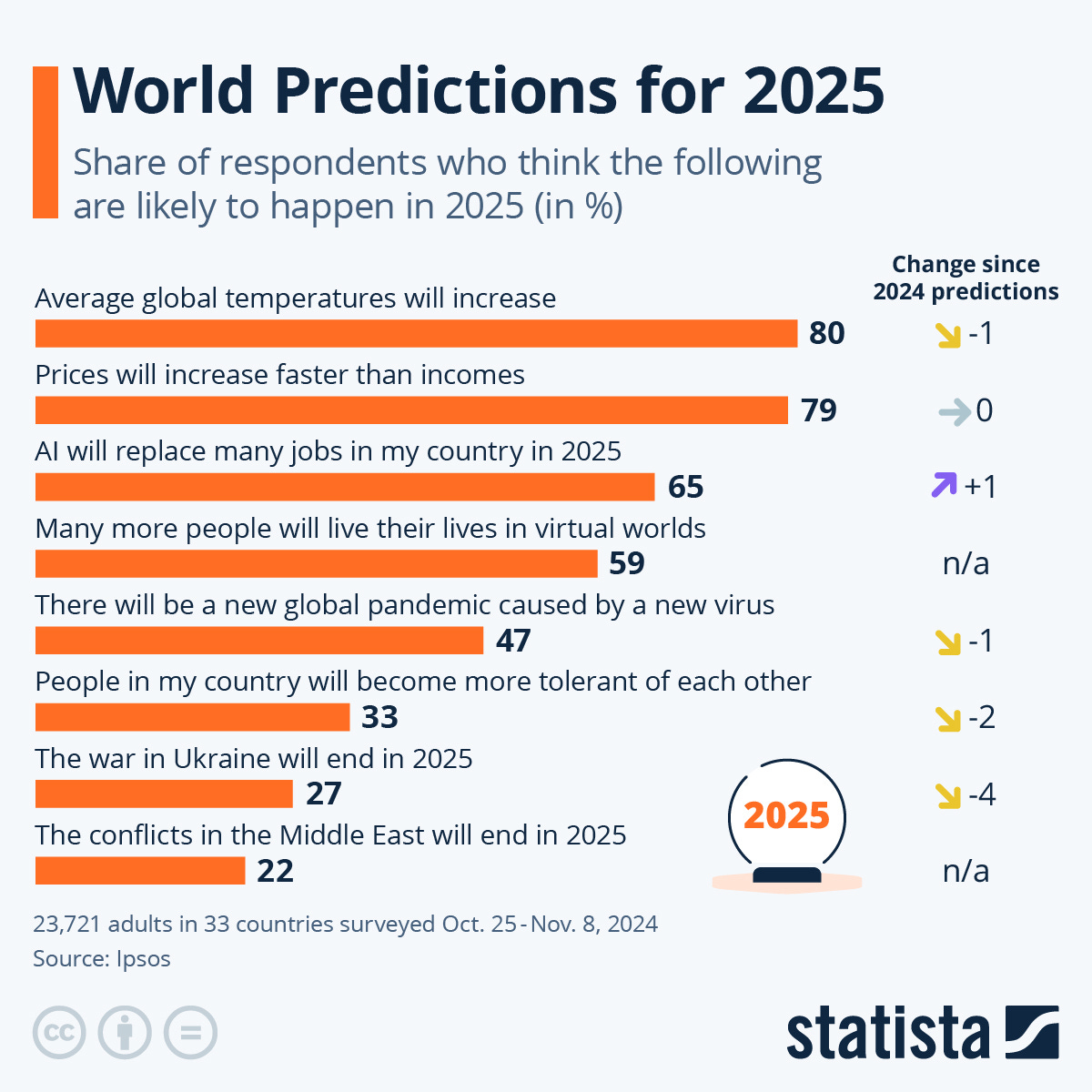The 242nd Block: The year in media and technology began and is ending the same way
In chaos and dilemma
This week…
Your reading time is about 7 minutes. Let’s start.
I must admit, after starting my studies this autumn, I have been struggling to set time aside to write anything meaningful on this section. There is so much to read and write as a law student—I am saying this as a part-timer. (If you ever hear me talking about switching to full-time studies, I beg, talk some sense into me.) I hope next year I will be able to better use this space for what it is meant to be: a short and meaningful essay section.
But for now, as it is the year-end(ish), I would like to share a few things you have shared with me to improve my year on Substack:
Stop using AI-generated images, even if it is seemingly harmless and disclosed.
Avoid archived links, even if I am a paywall critic.
Several books and shows, including the TV series I’m watching this week. Thank you for your recommendations. I have shared my tech reads for the last couple of years, at least, and many of you have responded in kind, and I’m grateful.
I continue to appreciate your feedback and advice. You are the building blocks to the Block, heh heh. That said, here are a few of the best editions from this year, in no particular order and for varying reasons—but mostly because many of you responded so warmly and positively to them, for you to revisit if you wish:
The 201st Block: This year’s tech reads in conjunction with IWD.
The 198th Block: On Lysenkoism—so we are reminded of the rise of eugenics in our peripheries. At least one of you wrote your own article about Trofim Lysenko after reading that. There are still many angles to the story to be explored.
The 238th Block: My reflection on how I understood the importance of the arts. Many of you wrote to me about how you wanted me to write essays that are more personal such as this one. That is going to be quite unlikely, since I generally have an objectivity rule (see below), but there are always exceptions to any rule...
The 235th Block: The future of journalism, and the ethics of influencer-journalists.
The 225th Block: A reality check of the business of fact-checking.
The 200th Block: On third spaces and making friends as adults (let’s not call it “networking”). Well, it’s not happened—the Powerpoint party where everyone gets together to explain what you do for work. Maybe next time, maybe never.
Your Wikipedia this week: Click for surprise
And now, a selection of top stories on my radar, a few personal recommendations, and the chart of the week.
ICYMI: The Previous Block was about mirrors and digital twins. FWIW:
Mirror life forms may sound like science fiction, but scientists warn they could be deadly to humans and destroy the environment by Mark Lorch (University of Hull) for The Conversation.
Vers des clones de nos personnalités pilotés par une IA par Nicolas Arpagian dans Franceinfo.
CORRECTION NOTICE: None notified. ON THE MEDIA
Challenging the system: a look inside a major investigation of harassment in Italy’s media industry
Alessandra Vescio for The Fix:
From February to October 2024, freelance journalists Francesca Candioli, Roberta Cavaglià and Stefania Prandi interviewed more than 200 students and inside sources who, over the last ten years, had attended one of the ten journalism schools recognised by Ordine Nazionale dei Giornalisti, the body that regulates the journalism profession and its members in Italy.
What has come to light shows how common it is for women journalists to experience abusive behaviour and sexual harassment even at the beginning of their careers.
“Our investigation started after receiving three initial reports of gender discrimination and sexual harassment during informal conversations with journalism students and writers,” Prandi said, and “it seemed to us, and still does, that it was particularly serious that these events could occur already in the training stage, when the power imbalance between trainers and trainees is particularly pronounced.”
Loosely linked:
Overcoming online echo chambers requires institutional and individual commitment by Jocelyn Maclure for Policy Options.
China’s pop fiction boom poses a dilemma for the Party by Kornphanat Tungkeunkunt for Fulcrum.
Reel resistance: Netflix’s removal of Palestinian films adds to the erasure of Palestine by Chandni Desai (University of Toronto) for The Conversation.
How Facebook restricted news in Palestinian territories by Ahmed Nour, Joe Tidy and Yara Farag for BBC.
After Mexico’s top streamer—the president—left office, YouTube creators hustle for views by Lorena Ríos for Rest of World.
Why so many influencers are running for election in Indonesia by Michelle Anindya for Rest of World.
ON AI AND CYBERSECURITY
The god illusion: why the pope is so popular as a deepfake image
Dan Milmo for The Guardian:
For the pope, it was the wrong kind of madonna.
The pop legend, she of the 80’s anthem ‘Like a Prayer’, has stirred controversy in recent weeks by posting deepfake images on social media which show the pontiff embracing her. It has fanned the flames of a debate which is already raging over the creation of AI art in which Pope Francis plays a symbolic, and unwilling, role.
The head of the Catholic church is used to being the subject of AI-generated fakery. One of the defining images of the AI boom was Francis in a Balenciaga puffer jacket. A remarkably realistic picture, it went viral in March last year and was seen by millions. Francis, however, did not see the funny side. He alluded to the Balenciaga image in a speech about AI in January where he warned about the impact of deepfakes.
Loosely linked:
AI-driven precision medicine could be a game changer in Africa by Johan Steyn for Context.
AI will have a huge impact on Africa. But we must avoid the hype by Kathleen Siminyu for Context.
We regret to bring you this audio of two Google AIs having extremely explicit cybersex by Noor Al-Sibai for Futurism.
Spyware is spreading and it’s cheaper than ever by Joel Simon for CJR.
The Data Dragnet: A new world of technological surveillance by Peter Andrey Smith for Undark.
ON SCIENCE
Inside an Argentinian nuclear reactor, science and politics collide
Jack Leeming, photography by Karl Mancini for Nature:
[Javier Milei has] shown scant respect for science (even though he had his dog, named Conan, who died in 2017, cloned several times) by agreeing with other populist world leaders that climate change is a ‘hoax’ and ignoring evidence to the contrary.
The cuts have affected scientists and researchers all around the country, including those who work directly for the government and academics who are funded by grants. It took large protests to force the government to raise funding for universities despite the heady inflation rates. And key construction projects on state infrastructure have stalled including the CAREM small modular reactor nuclear plant near Zárate, a prototype and one of the first reactors of its kind.
The country’s National Atomic Energy Commission (CNEA) is among those government departments that have found themselves under huge pressure and has warned it will soon be unable to carry out its activities. These include running the country’s nuclear reactors, which provide 10 per cent of Argentina’s electricity, taking part in academic activities and providing radioisotopes for medicine. In May, the government accepted the resignation of physicist Adriana Serquis, who had led the CNEA since June 2021, after she criticised Milei’s deep cuts.
Loosely linked:
Journal retracts study that promoted hydroxychloroquine as Covid treatment by Maya Yang for The Guardian.
There is a scandal growing about that paper about how black spatulas are killing you by Frank Landymore for Futurism.
Other curious links, including en español et français

LONG READ | When the minister of everything ran out of patience by Catherine Tsalikis for The Walrus.
INFOGRAPHIC | Singapore’s divisive ethnicity-based housing policy by Melissa Zhu and Nabilah Said for Kontinentalist.
PHOTO ESSAY | From Gaza to Ghana by The Guardian and Observer team of picture editors and photojournalists working for news agencies worldwide.
El efecto de los sesgos LGBTIQ+ en la IA: “Nos vemos obligados a evitar la palabra ‘queer’ en los mensajes” por Constanza Cabrera en El País.
La derechización de los gobiernos ya se nota en la Unión Europea por Irene Castro en elDiarioAR.
El peligroso y conveniente optimismo de las élites por Juan Bordera, Antonio Turiel, Fernando Valladares y Alejandro Pedregal en CTXT.
61% des posts LinkedIn en Français rédigés avec l’IA par Vincent Thobel dans The Media Leader.
Les algorithmes de recommandation, meilleurs ennemis du féminisme par Sophie Kloetzli dans Usbek & Rica.
L’actualité par les créateurs de contenu… non sans accrocs déontologiques par Stéphanie Dupuis dans Radio-Canada.
What I read, listen, and watch
I’m reading Palestine in a World on Fire (2024) by Katherine Natanel and Ilan Pappé. This would make it my 85th book read this year, and probably the last. I have an assignment due right after the holiday season. Here is my StoryGraph account, if you are interested: click here.
I’m listening to Tech Won’t Save Us where Paris Marx is joined by Brian Merchant, Molly White, and Eric Wickham to discuss this year’s tech news.
I’m watching Pantheon, an animated sci-fi series about uploading consciousness.
Chart of the week
Ipsos asked more than 23,700 people across 33 countries about their predictions for the coming year, with a survey on topics ranging from technology to the environment and world security. Anna Fleck reported some results for Statista.




